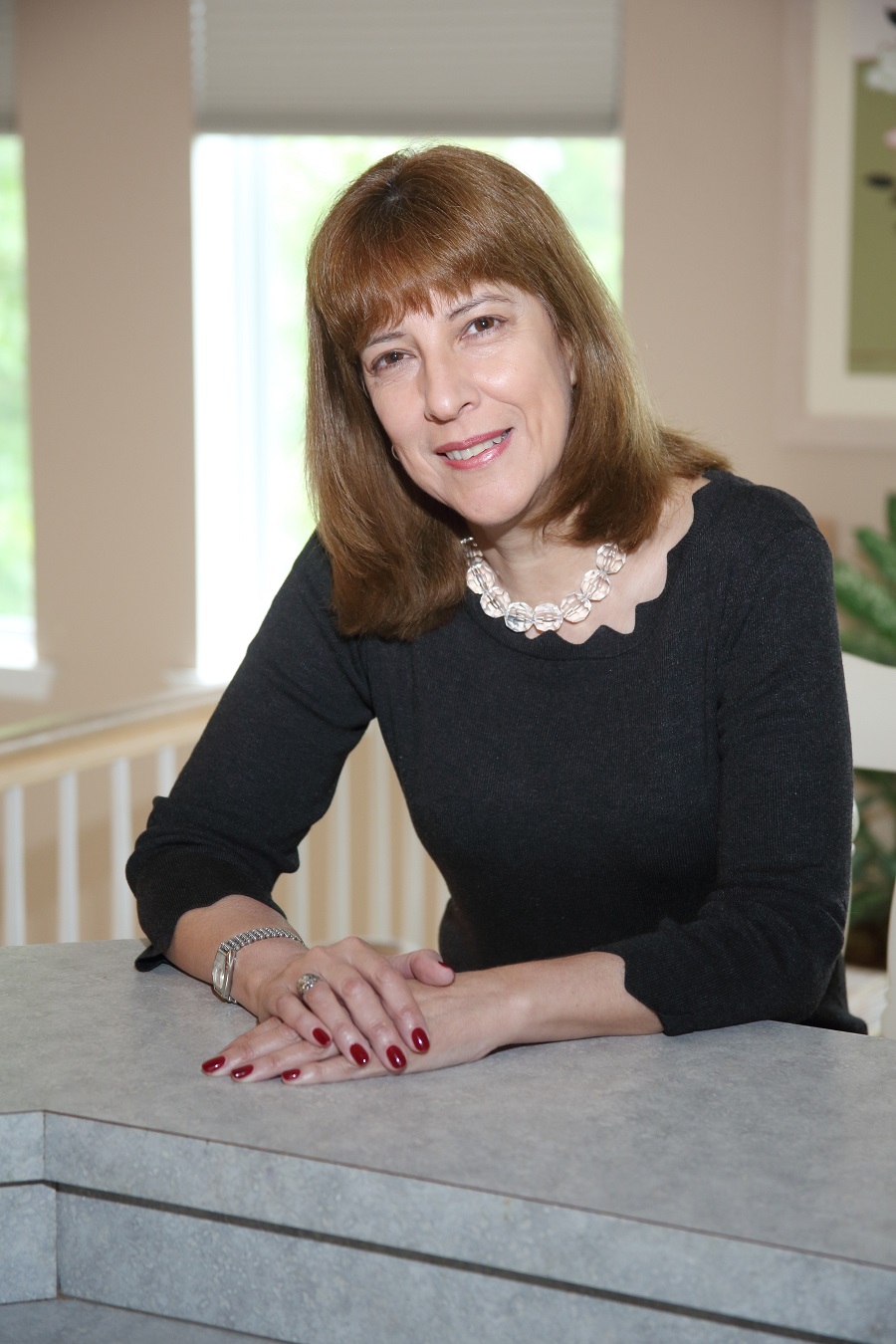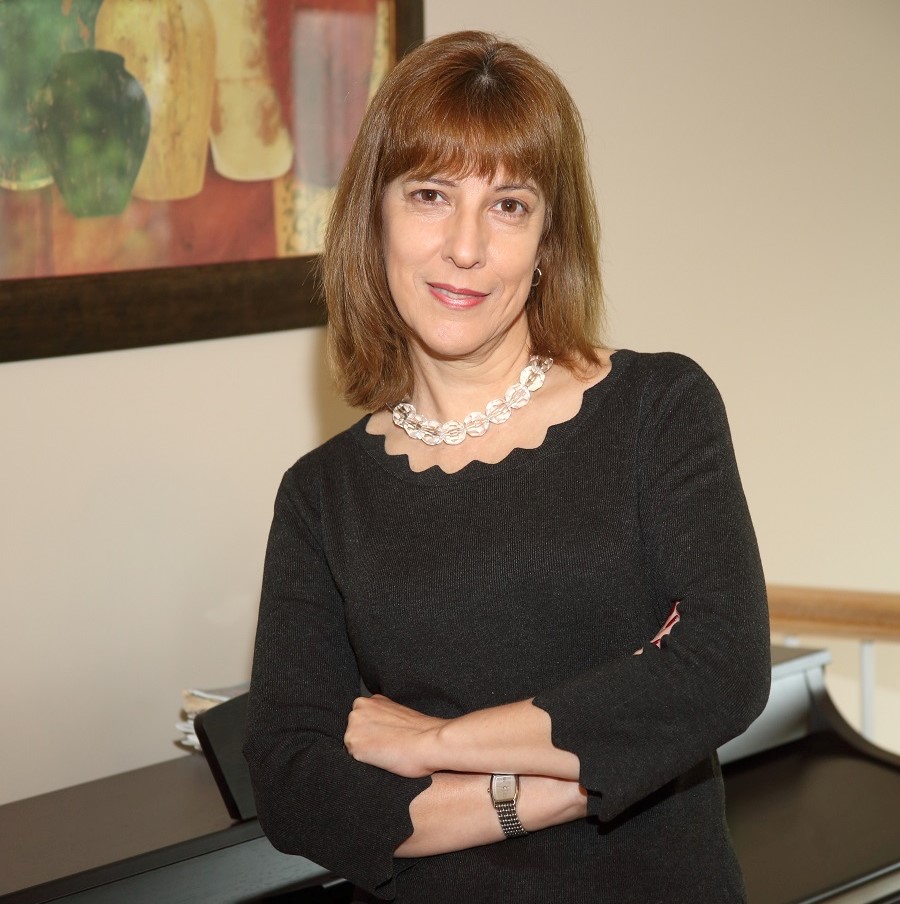“I was working at a well-known heart hospital—I was at the top of my career…Our profession is part of our identity. But for a certain time, I was ‘Laura’s mom,’ ‘Mauricio’s wife’—what about my identity? In Brazil, they called me ‘Dr. Susan.’ Here, because of my broken English, people assumed I didn’t have an education…”

When you look at Susan Gobbo’s business card, you’ll see a job title—International Spouses Consultant—that will likely require further explanation.
Gobbo is the founder and coordinator of the STL International Spouses Meetup Group, created to embrace foreign-born women who move to the area due to their spouse’s job transfer or assignment by helping them settle down and easing their transition to new surroundings. Gobbo also supervises the International Mentoring Program, which connects international women with local women to help them integrate into the local community.
Gobbo’s involvement came out of downright necessity—perhaps even desperation.
“I needed help when we first moved here,” she said. “I didn’t have that help.”
Gobbo and her husband, along with their young daughter, moved to the U.S. from Brazil in 2005. Mauricio, her husband of 20 years, works for Nestlé. He was transferred to Connecticut for a global project, then was asked to come to St. Louis in 2008.
“We were supposed to go back to Brazil after his project, but there was a good opportunity for him to grow his career in St. Louis—so we stayed,” she explained.
Gobbo hails from Piraju, a small town in São Paulo in south Brazil. She left her hometown when she started college to study to become a physical therapist—a profession she would thrive in for the next 15 years.
“I was working at a well-known heart hospital—one of the best in Brazil—I was at the top of my career,” she said. “When we moved to the U.S., I didn’t speak any English. It was hard in the beginning—we had not planned on living here for good.”
At the time, Gobbo’s visa was tied to her husband’s, which meant that she was unable to work.
“I was kind of lost,” she admitted. “Our profession is part of our identity. But for a certain time, I was ‘Laura’s mom,’ ‘Mauricio’s wife’—what about my identity? In Brazil, they called me ‘Dr. Susan.’ Here, because of my broken English, people assumed I didn’t have an education…”
With her life turned upside down, Gobbo realized she was at a low point.
“Your confidence goes down, you start staying at home more,” she explained. “I started feeling that I wasn’t being me. I’m normally an extroverted person, I love being active; then suddenly, I wasn’t feeling useful.”
To fill the void, she began taking English classes at St. Louis Community College. During one class, the teacher asked the students to write an essay in English, but Gobbo did not care for any of the suggested topics. Instead, the teacher advised her to write from the heart.
“Right around that time, I had just gotten my green card and found out I wasn’t able to work as a physical therapist in St. Louis,” she recalled. “I had completed post-graduate studies, I had authored a reference manual on physical therapy in Portuguese, I had 15 years of experience, but the credits didn’t translate and now, I had to start from scratch.”

So Gobbo started to do some research, which became the basis for an essay on cultural shock and how it affects international spouses. One thing led to another, and the paper she wrote for a class assignment steered her toward the St. Louis Mosaic Project, an initiative launched in 2012 in an effort to transform the region into the fastest-growing metropolitan area for immigrants and promote regional prosperity through immigration and innovation.
Around that time, Gobbo was beginning to meet other Brazilians in town and learned about Viva Brasil STL, a nonprofit that works to promote Brazilian culture in the community.
“I joined in 2013 as a volunteer because I spoke Portuguese,” she said. “You look for your community and do something for them first—it helps to gain your confidence. It’s hard to get started when you don’t have the language. I began as a volunteer, and then served on the board.”
In 2016, Gobbo and a friend—a speech therapist and fellow Brazilian—created the Mosaic-sponsored International Spouses Meetup Group, which now has more than 300 members from 61 countries who meet socially to share their cultural experiences. The following year, she helped jumpstart the International Mentoring Program as a resource for foreign-born women, who are each paired with a local mentor for one year as a way to introduce and educate them to the “nuts and bolts” of living in St. Louis. One-on-one meetings with a mentor could pertain to getting a driver’s license or explaining the garbage and recycling process, as well as learning about the city’s arts and recreational offerings, volunteer opportunities or networking. This year, the mentoring program has 110 participants—60 international, 60 local.
But that’s not all. Gobbo also developed a professional shadowing program to further assist international spouses who want to enter the workforce.
“Many women are not confident about working in the environment here. With this program, they can visit a company, just to shadow. They can see the requirements, see that they can do the job and it’s not as intimidating as they think,” she explained. “We had someone from Azerbaijan who wanted to work in H.R; she went through the program and got a job. It’s the fear of not knowing and making mistakes, especially if you’re from a developing country, there can be a lot of steps to adapt to.”
In addition, Gobbo consults with companies like Monsanto, Novus International and Nestlé to bring awareness about resources available to spouses of foreign employees.
“The companies spend so much money in relocating and training their employees, but they don’t think about the spouses,” she said.
As if her plate wasn’t full enough, Gobbo started Abração St. Louis. The group, whose name means “big hug” in Portuguese, is designed to welcome Brazilians into the community by offering to lend a hand with the basics, such as finding a store to buy Brazilian food, getting a referral for a doctor, or learning about life insurance. She has also branched out to organize St. Louis Meetup Portuguese for those who speak or are learning the language. It’s been quite a turnaround for someone who described her life to be “in limbo” just 10 years ago.
“It’s hard to close the door and delete your past. As you grow up, you start building your identity—you go to school, to college, start your career, and then suddenly, you delete everything,” Gobbo said. “When I started receiving these ladies in my group, we were in the same boat. They were Japanese, Russian, etc., and were feeling overwhelmed. There’s this pressure to keep up with the conversation in English. I had a good vocabulary, but I felt like someone in kindergarten. Having an accent is frustrating. When I first came here, I wanted help, but didn’t have help, so I want to help them.”





